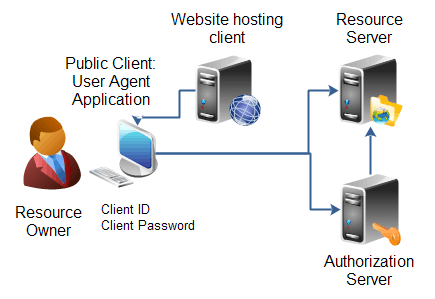Browser Agents
(2025-08-27T18:35.156Z)
Perplexity Query
(2025-08-27T18:35
.156Z)
Question:
Write a comprehensive one-page article about "Browser Agents".
Response from sonar-pro:
The Hidden Handshakes of the Web
Browser user-agents are identifiers automatically sent by browsers to web servers, playing a critical role in how web content is delivered and experienced.
[e5ayk3]
[76hkq4]
Though invisible to most users, these digital “handshakes” determine how websites display, function, and adapt to various devices and software.

Understanding Browser User-Agents
A browser user-agent is a string of text embedded in every HTTP request made by a browser or other web client.
[e5ayk3]
[q4dcjw]
This string reveals information such as the browser type (e.g., Chrome, Firefox), version number, operating system (Windows, Mac, Linux, Android, iOS), and sometimes device specifics.
[76hkq4]
[q4dcjw]
[9vmx05]
For example, a browser user-agent string might look like this:
text
Mozilla/5.0 (Windows NT 10.0; Win64; x64) AppleWebKit/537.36 (KHTML, like Gecko) Chrome/120.0.0.0 Safari/537.36This tells the web server not just that the user is running Chrome, but that it’s on a 64-bit version of Windows 10 using the WebKit rendering engine.
[e5ayk3]
[q4dcjw]
When a browser contacts a website, the user-agent string is included in the HTTP header.
[q4dcjw]
[9vmx05]
The server reads this information to decide how to serve the most appropriate content for that user’s environment. This might mean choosing which layout, script, or image quality is optimal, offering mobile-friendly pages for smartphones, or supporting fallback features for older browsers.
[76hkq4]
[1fb5zr]
Practical Examples and Use Cases
- Feature and Compatibility Detection: Web developers use user-agent data to enable or disable advanced features (like video playback or interactive elements) depending on browser support. [76hkq4]
- Analytics: Website owners track user demographics and usage trends via aggregated user-agent data, helping them focus development on the most popular browsers and devices. [76hkq4]
- SEO and Crawling: Search engine bots, such as Googlebot, have their own user-agent strings. Websites may tailor responses or grant special access to these bots for better indexing. [9vmx05]
Benefits and Applications
- Optimized User Experience: Ensures each user gets the best possible presentation and functionality based on their device and software.
- Enhanced Compatibility: Helps bridge the gap between rapidly evolving browsers and legacy systems, minimizing display errors. [1fb5zr]
- Better Targeting and Insights: Allows for strategic design and marketing decisions through analytics informed by user-agent statistics. [76hkq4]
- Security and Filtering: Some security systems use user-agent data to block known bots or suspicious traffic patterns.
Challenges and Considerations
- Maintenance Overhead: Supporting a wide variety of user-agents increases complexity in web development, especially as new browsers and devices appear. [1fb5zr]
- Deprecation of Browser Detection: Modern best practices recommend feature detection over relying solely on user-agents, since the same browser may behave differently across devices and updates. [76hkq4]

Current State and Trends
Today, browser user-agent strings remain ubiquitous, but their role is evolving as web standards and practices change. Major browsers like Chrome, Firefox, Safari, and Edge all use user-agents, with slight differences in format and detail.
[1fb5zr]
Increasingly, browser vendors are moving toward privacy-focused strategies, reducing the granularity of data in user-agent strings to prevent user tracking and fingerprinting. At the same time, the use of client hints—which let browsers selectively disclose additional information—has emerged as a modern alternative.
Key technology vendors, including Google and Microsoft, are leading trends with proposals to "freeze" or limit user-agent diversity, aiming to balance compatibility and privacy.
[9vmx05]
Web developers are increasingly encouraged to use feature detection (e.g., checking if a browser supports a specific function) rather than user-agent parsing.
Recent developments include:
- Deprecation of overly detailed user-agents in some browsers.
- Rise of headless browsers and bot detection services that rely on parsing or spoofing user-agents.
- Integration of client hints as a future-proof method for content adaptation.

Future Outlook
Looking ahead, browser user-agents may become less central to web development as privacy regulations and evolving standards reduce their use for fingerprinting and tracking.
[9vmx05]
More granular feature APIs and client hints will likely take over for adaptive content delivery, while user-agent strings settle into a basic compatibility role. However, some applications—from accessibility to legacy support—will keep user-agents relevant for the foreseeable future.
Conclusion
Browser user-agents are the digital IDs that quietly enable the tailored, device-optimized web we use every day. As the web advances toward greater privacy and flexibility, these strings are adapting too—ensuring content remains compatible while responding to new challenges and user needs.
Citations
[e5ayk3] 2025, Feb 26. What is Browser User-Agent?. Published: 2025-02-21 | Updated: 2025-02-26
[76hkq4] 2025, Apr 24. What is a User Agent? Understanding Web Browser .... Updated: 2025-04-24
[q4dcjw] 2025, Jun 16. Definition and Examples. Most Common User Agents List.. Published: 2025-01-01 | Updated: 2025-06-16
[1fb5zr] 2025, Jun 27. In Web Development, What Is A User Agent?. Published: 2025-06-09 | Updated: 2025-06-27
[9vmx05] 2025, Mar 09. What is user agent? Importance of user agent in SEO. Published: 2025-02-19 | Updated: 2025-03-09